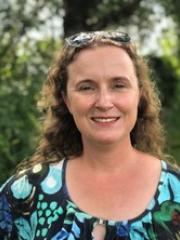Associate Professor Severine van Bommel

Researcher biography
Bio: Dr. Severine van Bommel is a Senior Lecturer at the University of Queensland's School of Agriculture and Food Sustainability. With a keen interest in rural development and agricultural extension, her research focuses on understanding the role of experts and expertise in orchestrating effective governance performances for systemic transformation of natural resource dilemmas and competing claims. Through an interpretive lens, her research aims to support experts in communicating and collaborating with farmers and communities in situations of social learning, multi-stakeholder partnerships, farmer field schools, community-based NRM or co-inquiry and co-design.
Research Interests:
- Rural development
- Agricultural extension
- Sustainable development
- Indigenous engagement
- Environmental credentials verification
Current Projects:
- the co-design of a virtual platform for verifying environmental credentials for Australian beef producers - developing indigenous engagement methods (storian) for Australian researchers working with Ni-Vanuatu livestock farmers - making visible and challenging gender norms in transdisciplinary research and development practice - facilitating more-than-human participatory research and practice
Publications: Dr. van Bommel has contributed to significant works in her field, including:
- "Rural Development for Sustainable Social-Ecological Systems: Putting Communities First" (Palgrave)
- "Forest and Nature Governance: A Practice-Based Approach" (Springer)
- "Forest-People Interfaces" (Wageningen Academic Publishers)
Her research contributions have been published in prestigious journals and presented at international conferences such as IPA, MOPAN, IFSA, and APEN.
Teaching: In addition to her research, Dr. van Bommel teaches courses on:
- Leadership in rural industries (MSc)
- Effective stakeholder engagement (MSc)
- Human-wildlife interactions (MSc and BSc)
Mentorship and Community Engagement: Dr. van Bommel is dedicated to mentoring early career researchers interested in interpretive methods within the APSA mentoring program. She also runs an International Virtual Community of Practice for Interpretive Practitioners, fostering collaboration and knowledge exchange in the field.
